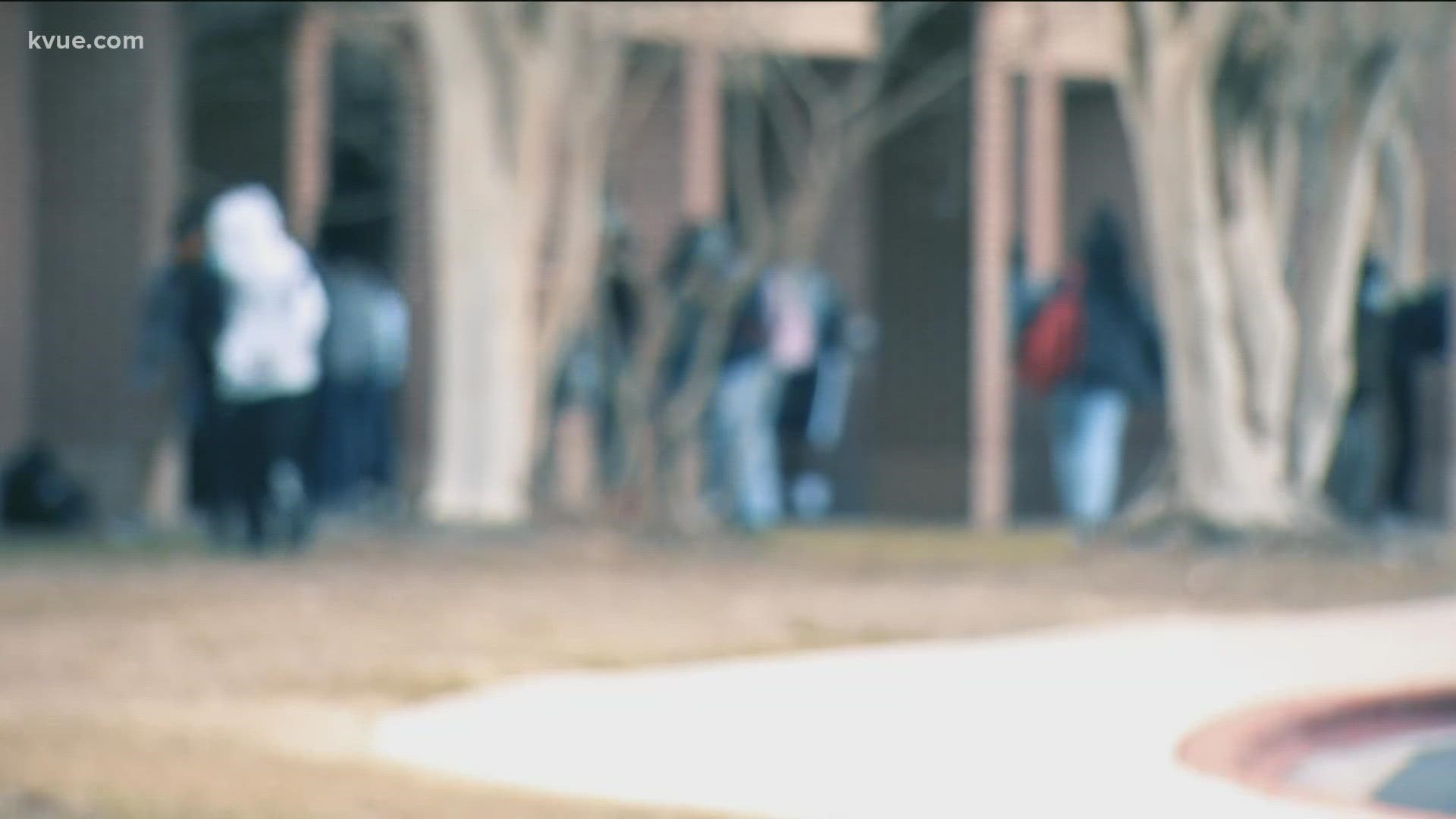AUSTIN, Texas — Dell's Children Medical Center and Integral Care continue to see alarming rates of depressed and suicidal children.
Even frustrating pickup lines are now a pick-me-up for parents after seeing what isolating at home for months did to their children.
"This kid has never had any mental health issues, has been a happy kid his whole life," said parent Erika Kinder. "He got, like, catatonic level of depressed."
"It was difficult," said parent Chris Zepeda. "It really has been the social, emotional learning piece that that really has concerned me the most."
Doctors said even with most children back in schools, masks and social distancing can still feel isolating.
"In my 18 years of being a social worker, we've seen kids with more symptoms of depression, more symptoms of anxiety and more suicidal ideation than we've ever seen before," said Integral Care School-Based Systems Practice Administrator LCSW-S Stacy Spencer.
Spencer said at the start of the school year, referrals for intensive therapy for students more than doubled compared to 2020 and it hasn't slowed down.
Another issue is the lack of resources for children, said child and adolescent psychiatrist and Medical Director for Pediatric Mental Health at Dell Children's Dr. Roshni Koli.
"There's so many parts of our country, including our own E.R. as well, in which kids are coming in crisis in unprecedented numbers, and because there's oftentimes a shortage of resources in the community, children and adolescents are staying in the E.R. for longer periods of time," said Dr. Koli.
The lack of social interaction isn't the only cause.
"Our kids and our adolescents have struggled with just lack of predictability, structure and routine," said Dr. Koli. "Not only has this pandemic caused such disruption to our overall community, but our kids are also struggling because they do not have the person that they trusted the most."
Dr. Koli said about 140,000 children and adolescents lost their primary or secondary caregivers during this pandemic.
"I think oftentimes feelings, emotions and thoughts can feel much more intense and sometimes more scary when we keep them to ourselves," Dr. Koli.
That's why Dr. Koli encourages kids to talk to a trusted adult. She said if your child has a change in appetite or sleeping, or is unusually sad or irritable for more than two weeks, reach out to a pediatrician.
"We really encourage our parents to be non-judgmental and be open to hearing what their kids have to say," said Spencer.
Spencer said some schools have free school-based therapy programs. Just check with your child's school counselor.
You can also reach out to Integral Care directly for help.
Dr. Koli said children can help decrease anxiety by practicing mindfulness, deep breathing, good sleep and physical activity.
Spencer said make sure your child is social in-person and not just online.
"Depression is something that can be addressed," said Spencer. "It doesn't have to be a lifetime thing."
- Integral Care, 512-472-HELP (4357) TXT, 741741
- Teen Lifeline, 602-248-8336 (TEEN) or 1-800-248-8336 (TEEN)
- National Suicide Prevention Lifeline, 1-800-273-8255
- Suicide Resource Center (American Academy of Child & Adolescent Psychiatry)
- Terros Health, www.terroshealth.org
PEOPLE ARE ALSO READING:

